Rethinking from Scratch to Better Deliver for Members: Emily Crane, Georgia Motor Trucking Association

Fifteen years at the Georgia Motor Trucking Association hasn’t faded Emily Crane’s passion for motor safety and educating others on how to stay safe. As the Vice President of Safety and Education for the Georgia Motor Trucking Association, whose mission is to make Georgia the best state in the nation in which to base and operate a trucking company, Emily works to provide information about regulations, safe driving operations and road-affecting events that helps trucking companies operate safely and efficiently. We talked with her about how GMTA is supporting trucking companies during this pandemic-influenced year and beyond.
Association Adviser: Tell us about your professional journey. How did you end up as Vice President of Safety & Education at GMTA?
Emily Crane: The running joke here is that I refused to leave. I started in 2005 as an intern, then worked here part-time for a couple of years while running my own business. I then started a full-time position in 2011. But I’ve always had an interest in safety and running events, and this position fits those interests. I enjoy the impact I make by promoting safety. It’s cool to see what safe operations education can do in an industry that affects everyone’s lives. Promoting safety and education for our industry and the motoring public fits into my passions outside of work, too.
AA: What type of business did you run back in the day?
EC: A cake decorating business! I love baking, but gave up my dream of decorating cakes full-time because it requires more time than I had thought. Sometimes your hobby shouldn’t become your work. Transitioning full-time into my position at GMTA was the right move because I was getting more involved in our events, our focus on safety and enjoyed it more than cake baking.
AA: That means you’ve been at GMTA for 15 years. What kinds of resources do you consume to stay on top of your job?
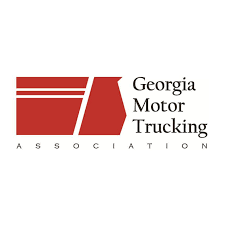 EC: We have access to great professional resources through the American Trucking Association (ATA). I take part in their webinars and look forward to attending more of their safety-focused conferences in the future. I’m a member of ATA’s safety council so I can learn alongside truckers what should be done to improve road safety through regulations, technology or daily practices. At GMTA, we spend a lot of time with our members. They call in often and I hear what day-to-day life is like for their drivers and employees. That feedback helps us determine what our education offerings should be. Listening to what they have to say gives us more information about our industry and the true challenges our drivers face each day.
EC: We have access to great professional resources through the American Trucking Association (ATA). I take part in their webinars and look forward to attending more of their safety-focused conferences in the future. I’m a member of ATA’s safety council so I can learn alongside truckers what should be done to improve road safety through regulations, technology or daily practices. At GMTA, we spend a lot of time with our members. They call in often and I hear what day-to-day life is like for their drivers and employees. That feedback helps us determine what our education offerings should be. Listening to what they have to say gives us more information about our industry and the true challenges our drivers face each day.
I also encourage everyone to get involved with the regulatory or enforcement side of their industry. Having someone in regulation is like having an additional team member you can reach out to. If I need additional clarification about an issue a member is having, I’m a text message away from the motor carrier compliance officers in the Federal Motor Carrier Safety Administration. Every time I talk to them, I learn something. There are people in our industry who know those regulations inside and out because they have a lifetime of experience, I don’t yet, but I know who to talk with to find the correct answers our members need. I always try to refer members to the Federal Motor Carrier Safety Administration as well, so they can receive accurate information from a primary source.
But the relationships we’ve built with our members are invaluable and help us do our jobs better every day. I cannot imagine the success of our association without that. Plus, talking with your members should fire you up and make you want to do your job better!
AA: How has GMTA been supporting truckers this year?
EC: Truckers and trucking companies are on the front lines. When everyone backed away and went home for the pandemic in March, our guys went in. They do that whether it’s a storm, flood, or pandemic. We have systems in place for our members to communicate with each other and with their drivers about emergencies. When there’s a storm, we send alerts about road conditions, how to get special permits, and what storm-scenario recommendations are for completing a route. The goal is for our members to have one source for info they can pass along to their drivers.
In addition to sending emails, we launched a mobile app at our June 2019 annual convention that is providing an additional source of information for the industry. The app serves as our meeting guide for the convention and leadership conference, and as a general info and emergency information app for the rest of the year. It has a hurricane portal that serves up essential information, including every transportation declaration under which our members’ drivers might be operating, such as traffic contraflows. During the pandemic, it has become a COVID-19 portal and even contains an essential worker authorization letter that drivers can easily pull up on their screens when they’re crossing state lines or checking in at weigh stations.
One cool app feature is that it can provide information about high-crash areas in the metro Atlanta area. The app applies a geofence around Atlanta, and when a device with the app on it enters the geofence, the app will begin sending relevant notifications about high-crash areas. We can see on the back end how often devices enter the high-crash area, and it’s fun to see that data develop.
When the pandemic hit, our people were used to getting our alerts and knew to look for our COVID-19 resources within the app. They had essential worker letters at their fingertips and the latest information about state closures. They were on the front lines ready to stock our shelves with the essentials!
AA: Have you discovered new ways of reaching and serving members with safety and education programs thanks to pandemic-influenced practices that you plan to continue in the future?
EC: Oh yes! Our app is one way: Usage grew from less than two dozen in December 2019 to more than 400 users in June 2020.
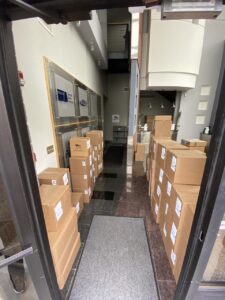
To serve members’ immediate needs this past spring, we sourced and distributed thousands of bottles of hand sanitizer and thousands of disposable masks to their employees and some members of the general public. My neighborhood, for example, bought some of the sanitizer! We sourced it from a distillery local to Atlanta, picked it up and brought it to our office where we repackaged the sanitizer into 1-gallon, 5-gallon, and 8-ounce containers before shipping it out to our customers. We did four rounds of ordering sanitizer on a Thursday, receiving it on Monday, and packing and shipping it out on Tuesday. For local customers — family, friends, and others connected with our association — we offered a socially distanced pick-up window. Now we have partnered with a distribution service that is continuing to provide masks, sanitizer and other PPE to our members and firms across the southeast. In addition, Publix and several GMTA members helped us hold a truck driver appreciation day and give away hundreds of meals and thousands of masks.
In terms of our education programs, we normally do quarterly and annual trainings in person. Because of COVID-19, we’ve been holding them online since March, and we’ve seen a much higher attendance. It makes sense — if you’re located in south Georgia, it’s difficult to attend a session in Atlanta, for example. But if that same session is offered online, it’s much easier to attend no matter where you’re based.
We’ve offered virtual certifications to train our members and transportation professionals in other states because some states aren’t holding training online, but people still need to progress in their careers. Normally, we’d have a dozen or so people attend our in-person training. In August, we had 28 people from all over the southeast attend a Zoom-based course. That really opened our eyes to how conducive some of our offerings can be to online delivery, and we’ve begun considering what else we can do virtually to expand our educational offerings. We’ve been able to offer more webinars, which our members want. They often ask to speak at meetings or seminars, and in person, we can only offer so many. But when we take things online, we can produce more, share more, and more people can attend. We’re doing online seminars about truck parking, distracted driving, best hiring practices and the Paycheck Protection Program. There are some things, like our Truck Driving Championships, that we just can’t replicate online! But overall, the pandemic is encouraging us to think outside the box in terms of how we offer our educational programming.
AA: Will GMTA move toward a hybrid meeting module, or stick with in-person?
EC: So far, we’re not planning any hybrid events, just in-person only or online only. But we have such a creative, flexible staff that has been doing lots of brainstorming about how to improve our education offerings permanently. The pandemic has given us the opportunity to rethink everything from the ground up, and with that knowledge our team is capable of rethinking how we do things! In the past, things were expected to look a certain way. COVID-19 has given us an excuse to reimagine how those same things might look in a more ideal world. Our members and sponsors have responded well so far to the changes we’re making. Everyone has said, “We’ll rethink this from scratch, and consider how we can deliver better for our members.”
In the long run we want to balance virtual trainings with established in-person events. We will definitely still offer in-person events because our members like meeting face-to-face. They tell us, “We’re still going to convention whether you’re there or not!” We’re thankful that we were able to hold all of our events except one (the Truck Driving Championships; we just could not find a way to hold them in a safe, socially-distant way) because members enjoy them so much.
AA: GMTA held its annual meeting in person in June, at a time when many states were still locked down and very few people were traveling. Considering the circumstances, it was a success — no reported COVID-19 cases resulting from the meeting, a slight margin of profit earned, and an enjoyable experience for attendees. What did you learn from this meeting that you plan to apply to future meetings? (GMTA’s Ed Crowell joined Emily to share.)
EC: The core of an association is people getting together. We looked at what we planned to do during our annual meeting and the safety measures the hotel could help us take, and decided we could. Early on, we talked about the flexibility we’d need within our event contract. The hotel worked with us to drop required minimums and overset our meeting spaces so that everyone would have plenty of room to spread out and enjoy the meeting. We doubled the registration table size so that everyone stayed six feet apart. Attendees had six-foot tables of their own in each session. We served plated meals instead of buffets. We gave out a lot of hand sanitizer and masks. We had some fun with the need to distance ourselves from each other, such as handing out items using hand grippers and offering everyone their own golf cart during our golf event. The Ritz-Carlton, where the meeting was held, went the extra mile for us too by offering things like breakfast in souvenir coolers one morning instead of plain boxed breakfasts. We held as many parts of the meeting outdoors as possible because it was safer to do so.
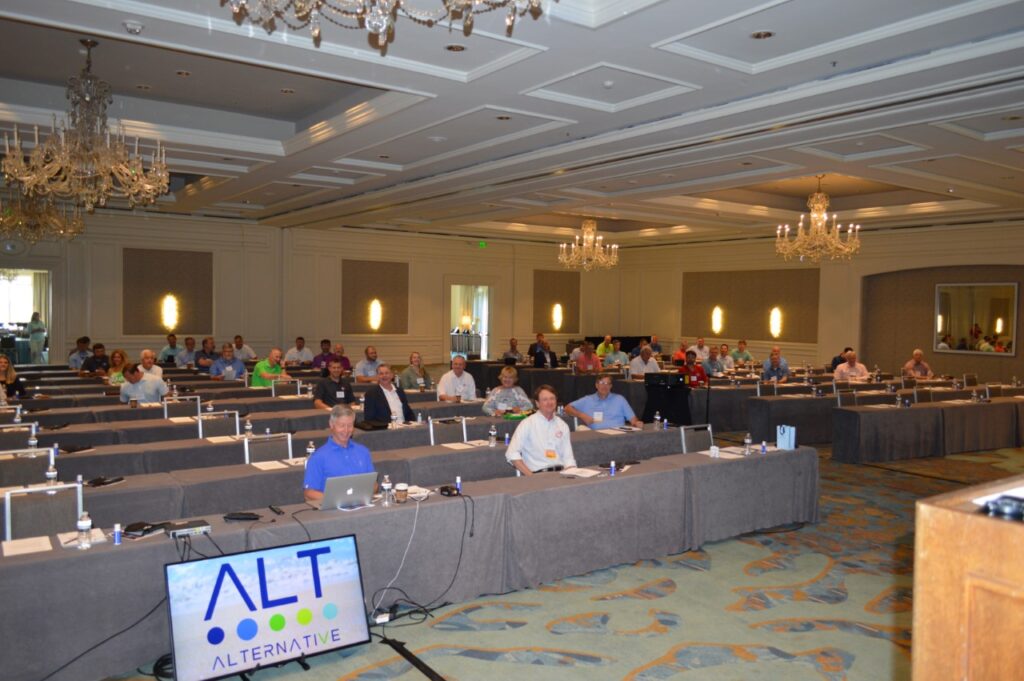
Everyone was so thrilled to do something in person again. The most frequent comment we heard from our members who couldn’t attend was that they could not come not because they didn’t want to or didn’t feel safe but because of company policies against travel. Many companies still sponsored our meeting even though they would not send anyone. Hopefully that means people are figuring out how to work in the coming year.
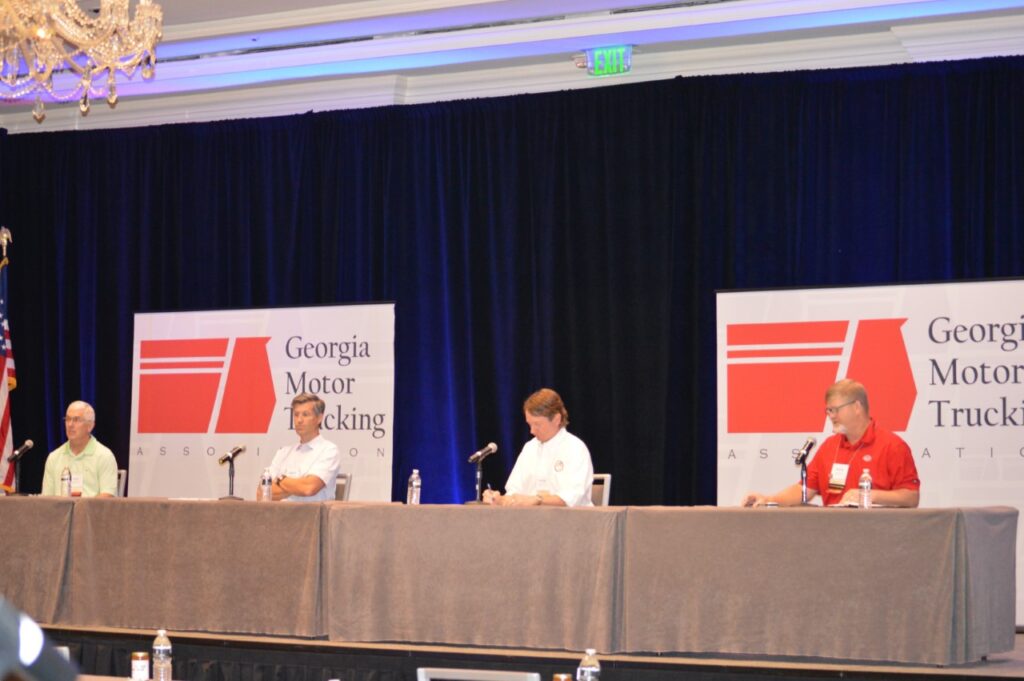
We’re still finding our feet in terms of fee-based online events. Such events, like an online seminar vs. a town hall type meeting with the lieutenant governor of Georgia or the deputy commissioner for Georgia’s DOT gives members more direct access to people they wouldn’t normally see, and that holds value.
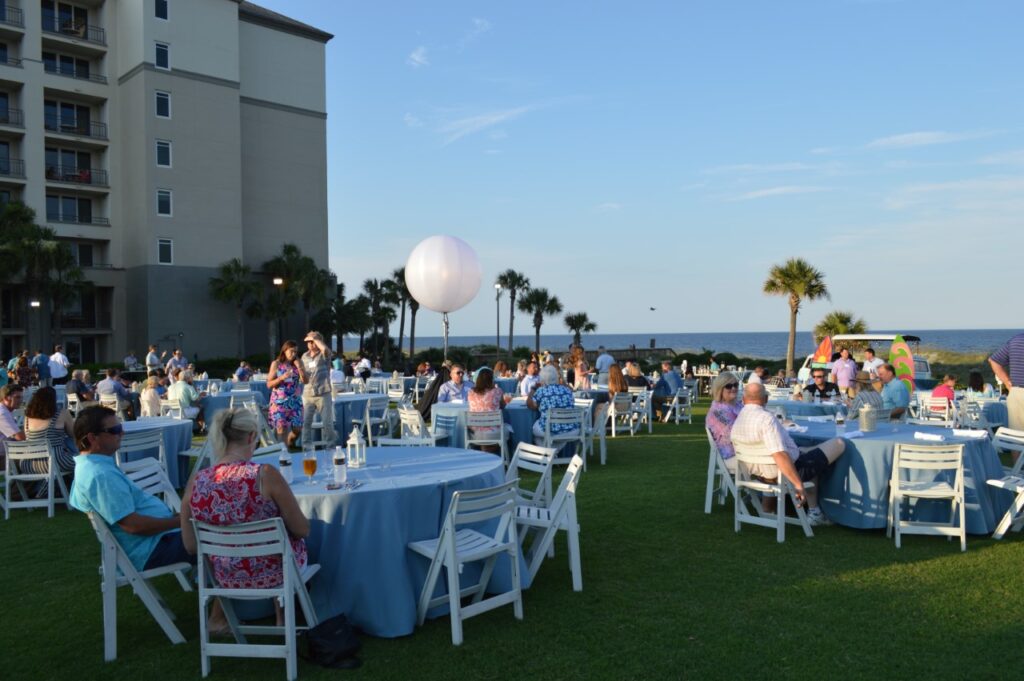
AA: Where do you want to steer GMTA’s education programs in the next 1-3 years?
EC: We would like to reach a larger crowd, and expand to people in our industry that we’re not currently reaching. There are so many more people involved in the operation of our industry besides those we currently talk with. We want to reach all the way from mechanic to safety director to CEO.
We hope to create more partnerships with government agencies, and to work on the creation of more substantive certification programs beyond what’s currently available.
AA: In terms of your job, what keeps you up at night?
EC: Currently, the late-night Braves games! But in terms of my job, I don’t lose much sleep at night. We have an awesome team and wonderful members. We know how we operate and what we have to do to operate successfully. When there’s an event around the corner, I’ll sometimes wake up at night and wonder if I’ve taken care of something in preparation. But I’m a very organized planner, and everything that must be done is recorded in my color-coded planner, right down to each email and what day it should be sent. That notebook helps me sleep at night! And my team — they’re the reason we can do everything we do.

